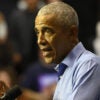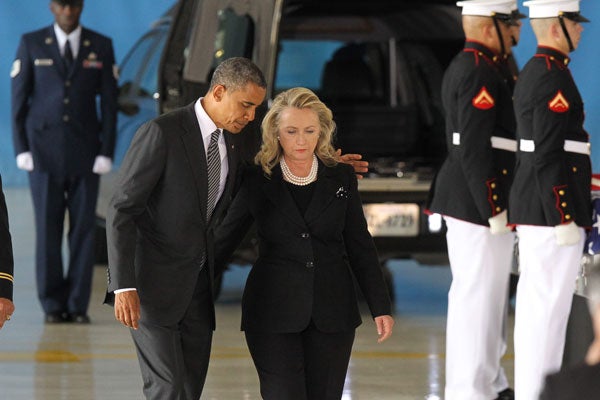The Associated Press reports that the White House is weighing the wisdom of striking at terrorist targets in Libya in retaliation for the September 11 attack on the U.S. consulate. According to the AP, the Administration is balancing “whether the short-term payoff of exacting retribution on al-Qaeda is worth the risk that such strikes could elevate the group’s profile in the region, alienate governments the U.S. needs to fight it in the future and do little to slow the growing terror threat in North Africa.”
Heritage expert Jim Carafano first reported news of an impending strike on October 4. Whatever the government decides, he concluded, a military mission won’t have much of an impact on presidential politics. “The Administration is too smart to think it can use military operations to play duck and cover—that would just fuel Wag the Dog speculation,” Carafano wrote. “Nor is it likely that Governor Romney will go after the President for attacks in Libya. He no doubt learned a lesson to be more cautious and deliberate after the criticism he received in responding to the statement made by the U.S. embassy in Cairo before the anti-American riots broke out.”
Regardless of the decision the White House makes, it is unlikely the controversy over Libya is going away. Last night, Secretary of State Hillary Clinton claimed sole responsibility for any security slips in Libya. To many, the timing of her announcement—coming a month after the attack and on the eve of the second presidential debate—will only fuel more claims that the White House is playing politics with the issue. And taking responsibility for the security situation before the attack does little to explain the confused messaging from the Administration after the assault that killed four Americans at the Benghazi consulate.
A late-breaking mea culpa or drone strike will not dampen the demand for a serious foreign policy debate. “There is no subject on which the two candidates differ more,” Carafano points out, “than in their views regarding foreign policy and national security.”

































3 Replies to “Libya and the Obama Administration: To Strike or Not to Strike?”